Wellness
Rude Things You Shouldn’t Be Doing At Grocery Stores
Published
12 months agoon
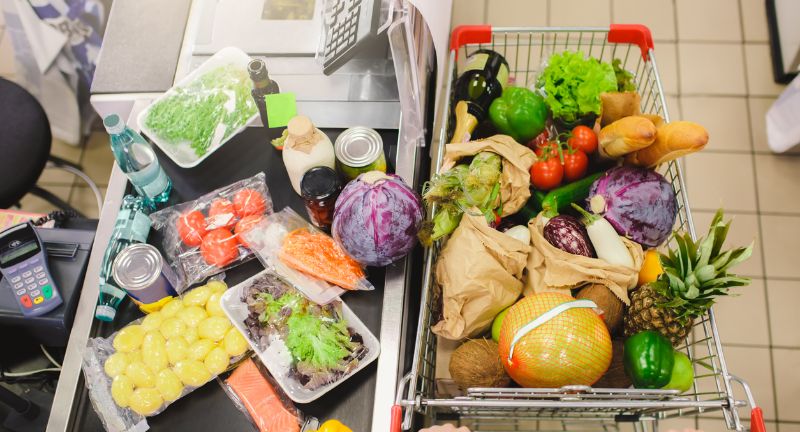
Shutterstock
When it comes to grocery shopping, the experience is not just about picking up food and household essentials; it’s also about navigating a public space shared with others. Unfortunately, not everyone is mindful of the unspoken social rules that make this experience smooth and pleasant for all. From obstructing aisles to ignoring basic etiquettes at checkout, certain behaviors can be incredibly frustrating and are considered quite rude by many. In this exploration of the 20 rudest things people do at the grocery store, we’ll delve into those common yet inconsiderate actions that can turn a simple shopping trip into an aggravating ordeal for fellow shoppers and store employees alike. Understanding and avoiding these behaviors can help maintain a courteous and respectful environment for everyone involved.
Blocking Aisles
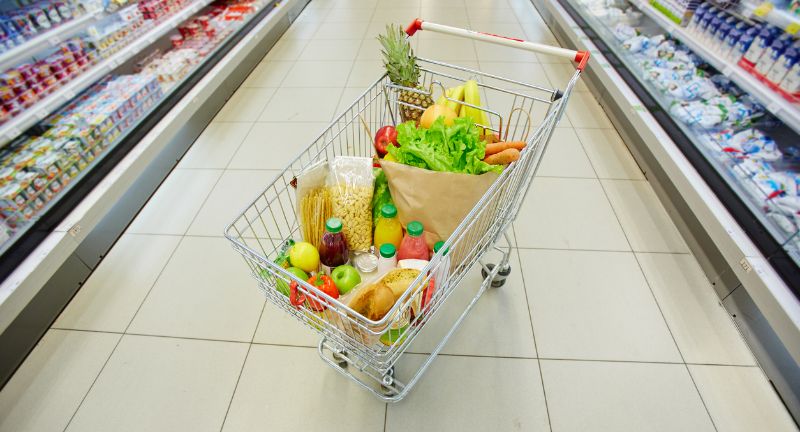
Shutterstock
When you block an aisle, it hinders the flow of traffic and can be especially frustrating for those with limited mobility or in a hurry. It’s important to be aware of your surroundings and make room for others to pass. This behavior can be particularly challenging in crowded stores or during peak hours. Being considerate of other shoppers’ need to access shelves and navigate the store is a basic courtesy.
Handling Produce Excessively

Shutterstock
Excessive handling of produce can spread germs and lead to spoilage, making the items less desirable or even unsellable. It’s considerate to only touch what you plan to buy. This behavior can also raise concerns about food safety, especially during times when health and hygiene are paramount. Think about how you would want your produce handled before purchasing.
Cutting In Line
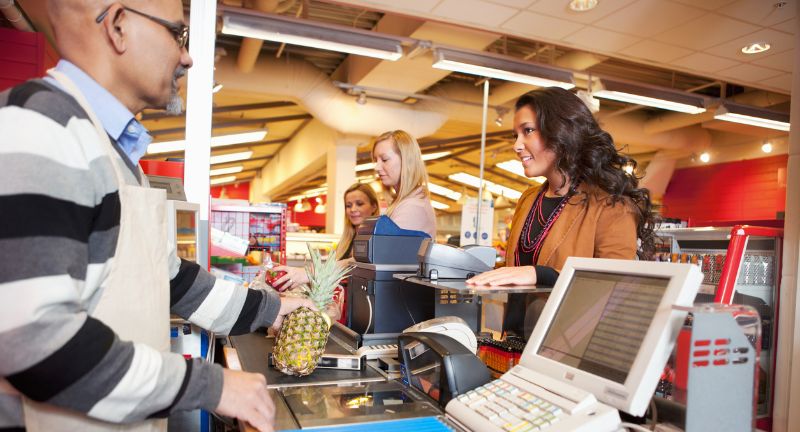
Shutterstock
Cutting in line shows a disregard for the time and patience of others who have been waiting. It can create conflict and disrupt the orderly process of checkout. This behavior is often seen as selfish and can lead to unnecessary confrontation. Everyone’s time is valuable, and waiting your turn is a basic aspect of respecting others.
Loud Phone Conversations

Shutterstock
Loud phone conversations in a public space like a grocery store can be distracting and invasive to the personal space of others. It forces others to listen to your private conversations, which can be uncomfortable. This behavior is often perceived as a lack of self-awareness and consideration for those around you. Keeping phone conversations quiet and brief in public spaces is generally more respectful.
Leaving Frozen Or Perishable Items Out

Shutterstock
Abandoning frozen or perishable items in non-refrigerated aisles leads to food waste, as these items may spoil and have to be thrown away. It shows a lack of consideration for the store’s resources and the effort of employees. This behavior can also increase costs for the store, which might ultimately affect prices for consumers. Always return items to their proper place if you decide not to purchase them.
Not Controlling Children

Shutterstock
Uncontrolled children can create safety hazards, both for themselves and others, by running into people or disrupting displays. Their noise and behavior can disturb the shopping experience of other customers. It’s important for parents to supervise their children in public spaces for everyone’s safety and comfort. Allowing children to behave disruptively can also put additional strain on store employees.
Leaving Carts In Parking Spaces
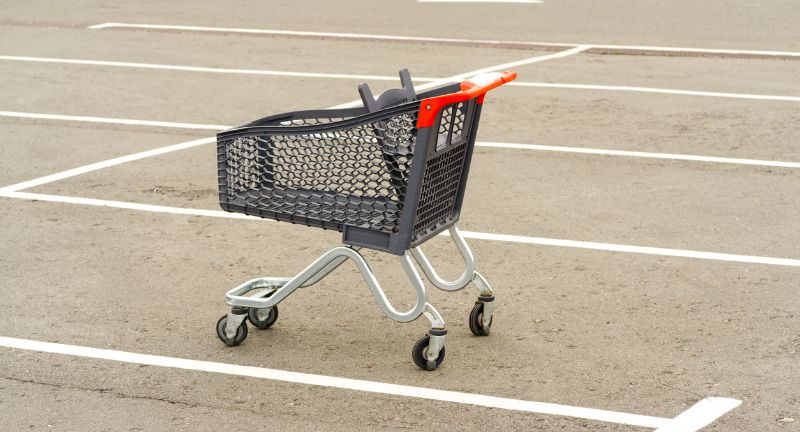
Shutterstock
Abandoned carts in parking lots can obstruct parking spaces and cause inconvenience for other drivers. They can roll and damage vehicles, creating unnecessary hazards and potential costs. Returning carts to their designated areas is a small but important aspect of being a considerate shopper. It also helps store employees by reducing the time spent collecting carts.
Being Rude To Employees

Shutterstock
Store employees deserve respect and kindness, just like any other person. Rude behavior towards them can create a hostile work environment and negatively impact their well-being. Employees are more likely to assist you effectively if they are treated with courtesy. Disrespect towards employees reflects poorly on one’s character and can escalate into unnecessary conflicts.
Sampling Unsampled Foods
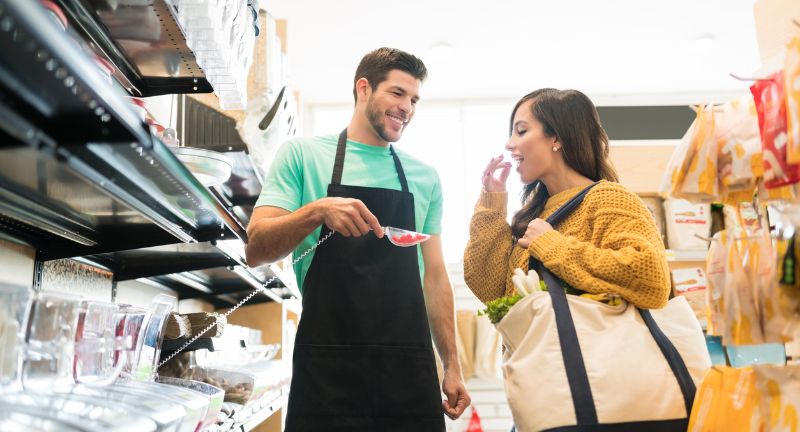
Shutterstock
Consuming food without paying for it is essentially stealing, regardless of the item’s size or cost. This behavior can lead to losses for the store and potentially higher prices for consumers. It also sets a bad example for others, particularly young shoppers. Respecting the store’s property and paying for all items is fundamental to fair and legal shopping practices.
Not Respecting Checkout Etiquette

Shutterstock
Proper checkout etiquette includes being ready to pay and giving space to the person ahead of you. Ignoring these norms can slow down the checkout process and frustrate both the cashier and other customers. Being unprepared at checkout can cause delays and inefficiency. Considerate checkout behavior ensures a smoother and quicker experience for everyone.
Ignoring Store Policies

Shutterstock
Store policies are in place for a reason, whether for operational efficiency, safety, or customer service. Ignoring these policies can disrupt store operations and create additional work for employees. It can also lead to a less enjoyable shopping experience for others. Adhering to store policies is a sign of respect for the establishment and its operational needs.
Taking Multiple Free Samples

Shutterstock
Taking more than a fair share of free samples can deprive others of the opportunity to try the product. It can be seen as greedy and inconsiderate, especially when there are limited quantities available. This behavior can also increase costs for the store. Being mindful and taking only your share is a basic courtesy in a communal setting.
Leaving Trash In Carts or Shelves
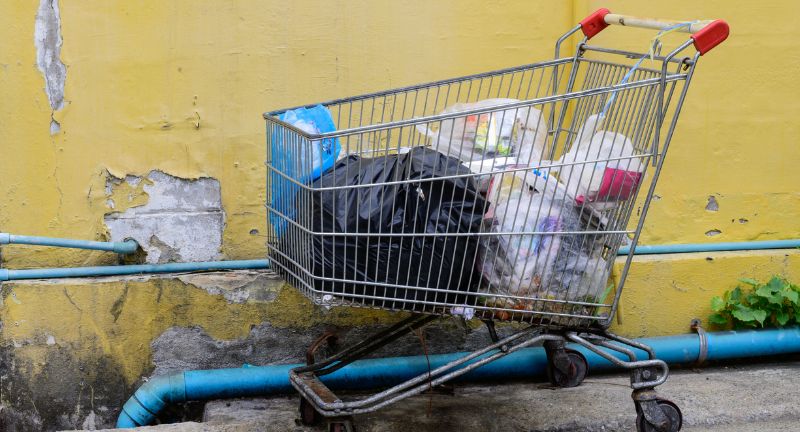
Shutterstock
Discarding personal trash like wrappers or tissues in shopping carts or on shelves is unsanitary and disrespectful to both employees and other shoppers. It creates extra work for store staff who have to clean up after you. This behavior can also lead to a less pleasant shopping environment. Disposing of your trash in designated bins shows respect for public spaces and consideration for others.
Using Expired Coupons And Arguing Over Them

Shutterstock
Trying to use expired coupons and then arguing with cashiers when they aren’t accepted creates unnecessary delays and discomfort. It’s important to check the validity of coupons before shopping and to respect the store’s policies if they’re expired. Arguing over coupons can hold up the line and frustrate both employees and other customers. Understanding and adhering to the terms of coupons ensure a smoother transaction.
Parking Inappropriately In The Parking Lot

Shutterstock
Taking up more than one parking space, parking in handicapped spaces without a permit, or parking in fire lanes can be extremely inconsiderate. It creates inconvenience for other shoppers, especially those who need closer or specially designated parking. Ensuring you park correctly and considerately helps maintain order and safety in the parking lot. Respect for parking regulations is essential for the accessibility and convenience of all store patrons.
Using The Express Lane With Too Many Items

Shutterstock
The express lane is designed for shoppers with a few items for a quick checkout. Using this lane with more items than the posted limit is inconsiderate as it delays the service for others who have fewer items. It’s important to respect the rules of the express lane to keep it efficient for everyone. This courtesy helps maintain a smooth flow and reduces waiting times for everyone.
Opening And Consuming Products Before Paying

Shutterstock
Consuming items before you’ve paid for them can be perceived as presumptuous and inappropriate. Even if you intend to pay for it later, it’s best to wait until after checkout. This behavior can create uncertainty for store staff and other customers. Paying for items before using them is a basic shopping etiquette.
Unnecessarily Squeezing Bread Or Other Soft Products
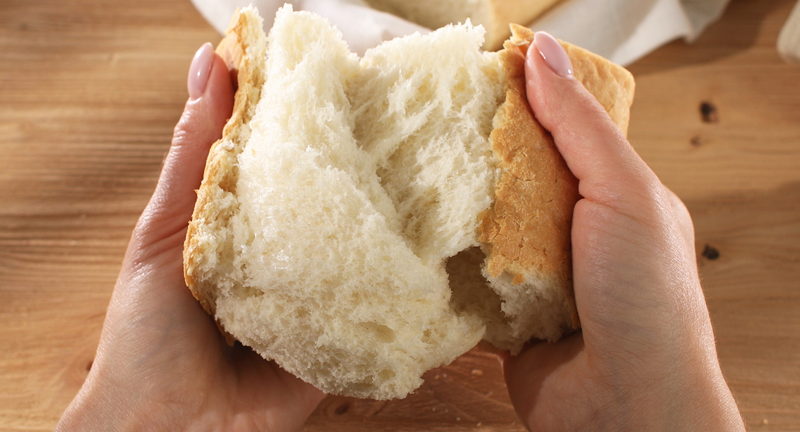
Shutterstock
Excessively squeezing bread, pastries, or other soft items can damage them, making them unsaleable and leading to wastage. It’s important to handle these items gently and only if you intend to buy them. This kind of behavior is not only wasteful but also disrespectful to both the store and other customers. Remember, treat products as if you’ve already purchased them.
Hiding Items For Later Purchase

Shutterstock
Hiding items in the store to come back for them later can be problematic, as it makes products unavailable to other shoppers and can disrupt inventory management. This behavior can be seen as selfish and unfair to both the store and other customers. It’s better to either purchase the item when you find it or take the risk that it might not be available later. The store is a shared space, and its inventory is for all customers.
Ignoring Social Distancing Norms

Shutterstock
Disregarding social distancing can make other shoppers feel uncomfortable or unsafe, especially in times of health crises. It’s a sign of respect to adhere to the store’s guidelines and public health recommendations. Personal space is valued, and encroaching on someone else’s can be seen as invasive. Respecting these norms is crucial for everyone’s safety and comfort.
Conclusion

Shutterstock
In conclusion, navigating a grocery store with courtesy and respect is essential for maintaining a pleasant and efficient shopping environment for everyone. The 25 behaviors highlighted above, ranging from blocking aisles to misusing express lanes, demonstrate how seemingly small actions can have a significant impact on others. By being mindful of our actions and showing consideration for fellow shoppers and store staff, we contribute to a more positive and enjoyable shopping experience for all. Practicing good grocery store etiquette is not just about avoiding inconvenience; it’s about fostering a sense of community and respect in everyday interactions. Next time you’re at the grocery store, remember that a little thoughtfulness goes a long way in making the experience better for everyone involved.










